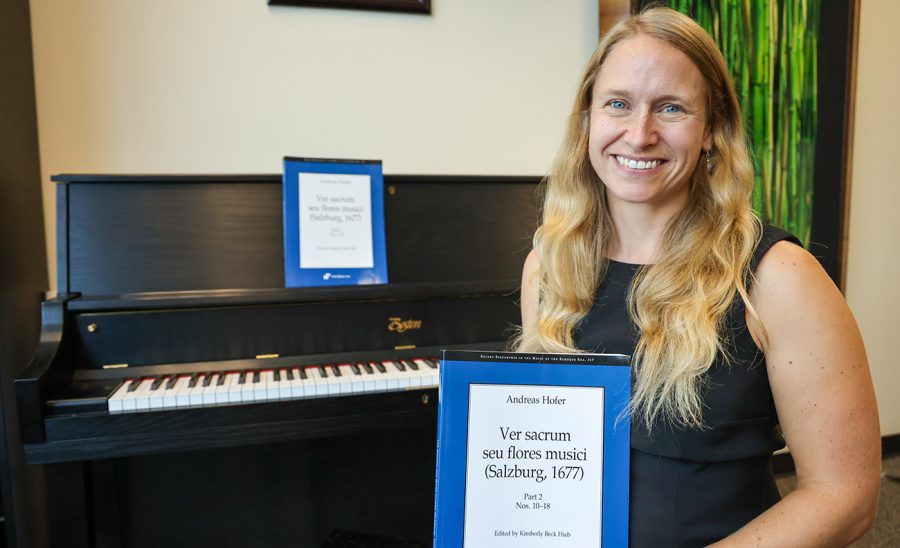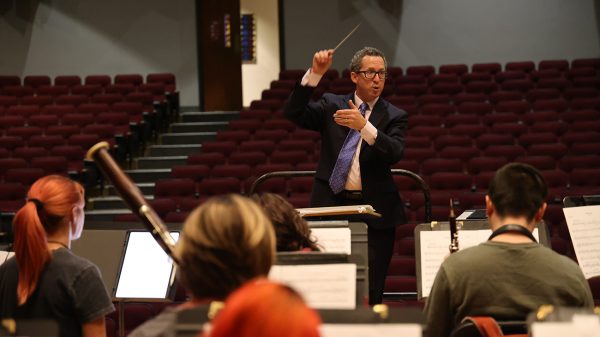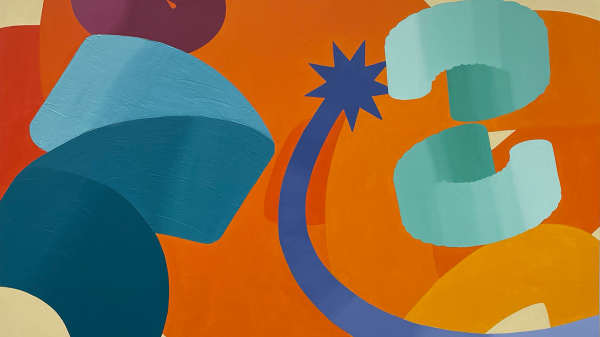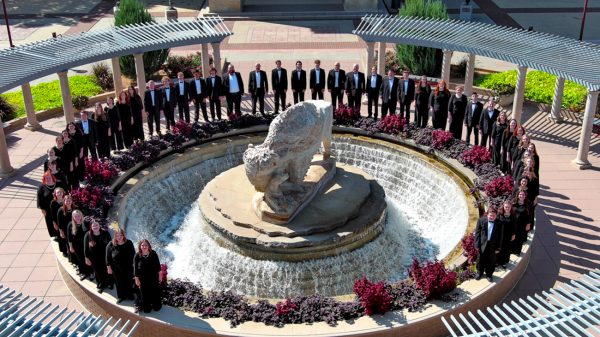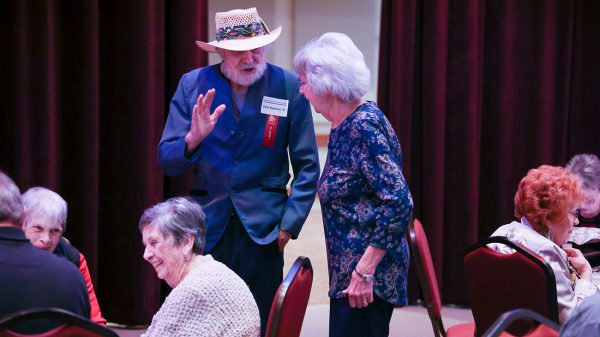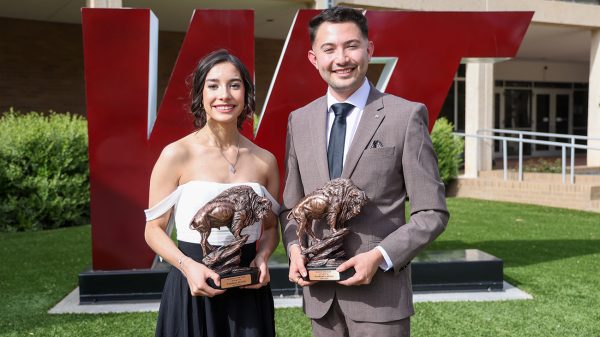WT Music Professor Publishes First Modern Edition of Austrian Composer’s Sacred Works
CANYON, Texas — Sacred 17th-century music by a Baroque composer is now accessible to the world, thanks to the research of a West Texas A&M University musicologist.
Dr. Kimberly Hieb, associate professor of music in WT’s School of Music in the Sybil B. Harrington College of Fine Arts and Humanities, published two volumes of scores by Andreas Hofer, a church composer who worked in Salzburg, Austria, in the 1600s.
“Andreas Hofer: Ver sacrum seu flores music,” which translates to “Sacred Spring or Musical Flowers,” celebrates a series of Catholic feasts.
“The title relates to the time of year the book was published—springtime—but it also relates to the prevalent topic of the musical compositions, many of which celebrate sacrifice or martyrdom,” Hieb said. “A ‘Ver sacrum’ or ‘sacred spring’ was a Roman practice of making sacrifices in spring to look forward to or give thanks for a successful harvest.”
This is the first modern musical edition of these compositions, which survive today only in centuries’ old partbooks—individual books of music for each instrument or voice, rather than being transcribed into one combined score, per modern tradition—in Salzburg and the picturesque Bavarian town Ottobeuren, Germany, Hieb said.
Hieb, whose research was funded in part by a WTAMU Foundation faculty development grant, has traveled to Austria and Germany for several years to transcribe Hofer’s music from the original sources.
“Before you can even do the transcription, though, you have to track down all of the partbooks, which can be fun and take you on some journeys,” Hieb said. “The archive in Ottobeuren was particularly tricky to access since they do not have a reading room or an archivist on staff. The abbot’s secretary fetched the partbooks from the archive for me and let me work transcribing at a little table in her office.”
Musicians can’t play or study works they don’t have easy access to, Hieb said.
“This project offers meaningful sources of church music that were used in Salzburg in the second half of the 17th century, a place and time that boasts lots of virtuosic violin music that has been studied and performed frequently, for example Heinrich Biber’s Rosary Sonatas,” Hieb said. “Hofer’s music dates to about a generation or so before the Mozart family was in Salzburg, but it is still indicative of the music the Mozarts would have likely heard in worship while in Salzburg.”
The books are available from publisher A-R Editions or on Amazon. WT’s Cornette Library has physical copies as well as access to PDFs via Recent Research in Music Online.
Hieb recently was named the new host for High Plains Public Radio’s “Classical Music Amarillo,” which broadcasts at noon Sundays, with an encore broadcast at 7 p.m. Thursdays.
Hieb joined WT in 2016. She earned a bachelor’s of music from the University of Wisconsin–Madison, a master’s in musicology from the University of Iowa, and a Ph.D. in musicology from the University of British Columbia.
Her research has been supported by the Austrian Exchange Agency, a Eugene K. Wolf travel grant from the American Musicological Society, and a Fulbright Research Fellowship to Austria. She has presented her research, which takes up questions of genre and religious and political representation in early modern music, at conferences both nationally and internationally.
Research in all areas furthers WT’s status as a Regional Research University, the goal of the University’s long-range plan, WT 125: From the Panhandle to the World.
That plan is fueled by the historic, $125 million One West comprehensive fundraising campaign. To date, the five-year campaign — which publicly launched Sept. 23 — has raised more than $110 million.



